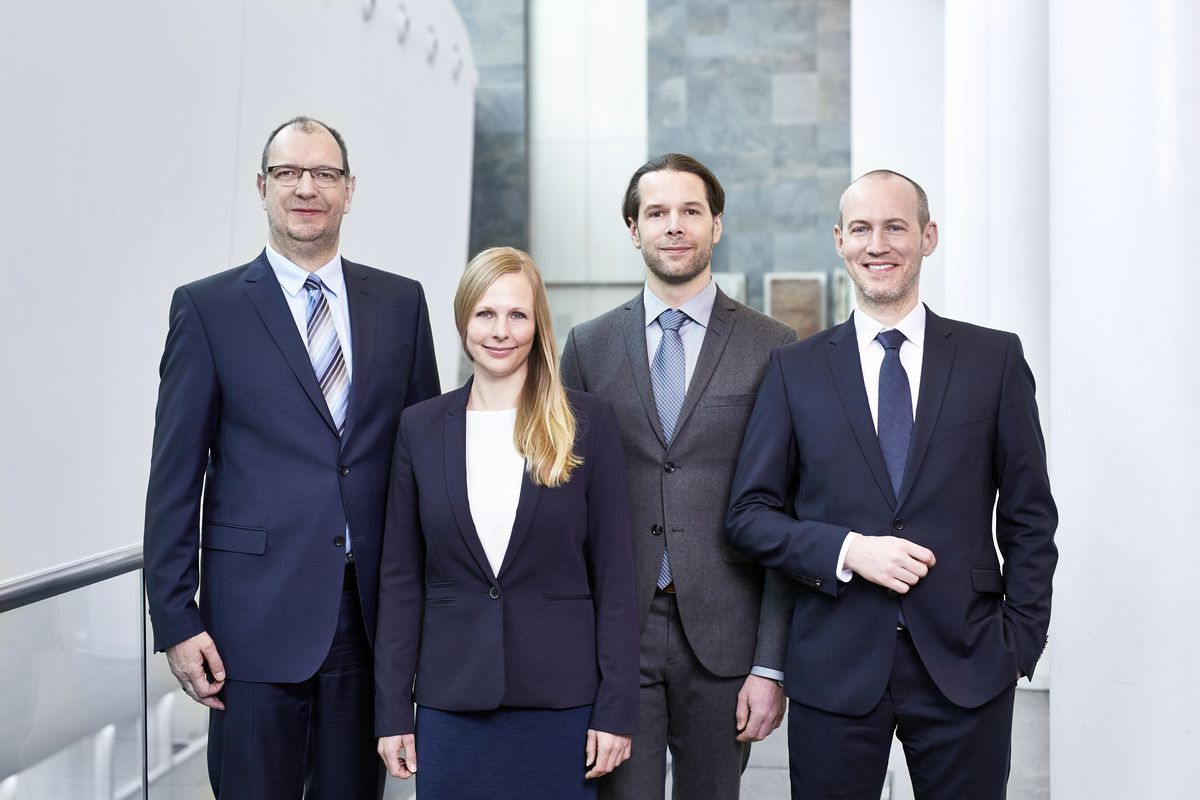The CEC brings together experts from science and practice to support and professionalize start-ups and young companies in their strategic communication.
Our topic: Strategic communication for startups
Start-ups are an important part of our economic system. They hold potential for innovation, value creation and employment. In mature economies with low growth dynamics as well as in traditionally structurally weak regions, great hopes are associated with start-ups. In Germany, the federal, state and local governments, as well as numerous companies and foundations, are therefore making efforts to promote start-ups. A critical success factor in establishing new companies is communication. This is precisely where the CEC comes in.
Our topic: Strategic communication for startups
Start-ups and founders have to build relationships with customers and investors, recruit committed employees and position themselves in the public discourse under time pressure and with limited resources. A good reputation, fascinating brands, thought leadership, a dynamic corporate culture and an excellent network of opinion leaders and influencers are just as important as technologies, customer benefits and capital. If you take the wrong path at the beginning, you can hardly correct it later. The specific challenges for the strategic communication of start-ups require tailor-made models and instruments. However, the established knowledge from corporate, marketing and financial communication has so far only been used to a limited extent for start-ups and specific research on the topic is almost non-existent. This is where the Center for Entrepreneurship Communication (CEC) comes in.
The CEC brings together proven experts from communication science, marketing and related disciplines as well as from communication practice in order to expand knowledge about the successful communication of start-ups, to professionalize start-ups and young entrepreneurs in their strategic communication, to orient partners of founders (e.g. start-up centers and consultants, innovation units of large companies, business angels, investors) on these topics and to equip students of all disciplines interested in start-ups with relevant skills. The CEC's findings, concepts and models are based on sound scientific research. The Center thus contributes to strengthening entrepreneurship in German-speaking countries and beyond.
In empirical research projects, the CEC focuses on the challenges of strategic start-up communication. The focus is on communication with customers and investors, press and public relations, employee recruitment, internal and management communication and founder communication. As a rule, start-ups are characterized by the fact that only limited communication skills are anchored in the organization, communication resources and structures are largely lacking or only weakly developed. It is precisely against this background that the early establishment and continuous development of strategic communication is a critical challenge.
However, no knowledge, proven concepts or models are yet available. The Center is therefore developing fundamental findings in the field of startup communication. The Center's team has proven and internationally recognized experience in empirical research in the field of corporate communication. Its experience, international networks, close contacts with leading decision-makers in communications practice and sound methodological know-how are applied to the subject of strategic startup communications within the framework of the CEC.
Selected work of the team in the area of research
- Founder Centricity in Start-ups (2023, Cornelia Wolf, Daniel Ziegele, Daniel Seibert)
- Startup-Kommunikation auf Twitter und LinkedIn (2022, Michael Johann, Cornelia Wolf, Daniel Ziegele)
- Investor Relations für Startups (2022, Christian Hoffmann, Lea Knabben)
- Purpose als Erfolgsfaktor strategischer Unternehmenskommunikation im Mittelstand (2022, Michael Johann, Daniel Ziegele)
- Interne Kommunikation in Start-ups (2020, Cornelia Wolf)
-
Strategiekommunikation beim Wechsel der Unternehmensstrategie: Herausforderungen und Handlungsmöglichkeiten beim Pivot von Startups (2019, Ansgar Zerfaß)
-
Social Entrepreneurship Organizations im Spannungsfeld zwischen Profit- und Gemeinwohlorientierung (2018, Cornelia Wolf)
- Die Ausgestaltung Interner Kommunikation in Startups. Eine Untersuchung anhand phasenspezifischer Herausforderungen im Unternehmenslebenszyklus (2017, Christian Hoffmann)
- Crowdfunding als Finanzierungsalternative für Medienprodukte. Ein inhaltsanalytischer Vergleich internationaler Crowdfundingprojekte (2014, Alexander Godulla)
The CEC is developing an advanced training program for startups based on current research findings and best practices that covers the entire process of strategic communication management. As part of an intensive transfer into startup organizations, current scientific findings as well as concrete models and strategies of startup communication are to be conveyed to new and existing startups. The CEC cooperates with initiatives to promote founders and consultants and supports them in their core tasks.
The CEC team is involved in the further education programmes of network partners and advises them on the development of new offers, organizes its own formats for imparting skills and is also available to interested start-ups for personal advice and coaching.
Another focus of the CEC's activities is the integration of current research findings on strategic start-up communication into academic teaching. In the degree programs of the Institute of Communication and Media Studies at Leipzig University and beyond, students are prepared for an innovative and growing job market through appropriate teaching formats. The aim is to equip interested students with the skills they need to successfully found a company - or to contribute to the professionalization of communication as employees of start-ups.
The CEC has also set itself the goal of making the topic of startup communication more visible in public discourse. For this reason, an award is to be created with which a jury of experts will honor particularly successful examples of innovative communication by start-ups.
Selected work of the team in the area of knowledge transfer
- Mentoring des Startups Innovailably: Mobile-Recruiting-App Whyapply (2017-2019, Ansgar Zerfaß)
- Entwicklung von Kommunikationskampagnen für diverse Startups (Lillydoo, BRLO) (2017, Christian Hoffmann)
- Storytelling als wirkungsvolle Marketingstrategie im Limited-Budget-Bereich am Praxisbeispiel einer Kampagne für ein lokales Startup-Unternehmen (Alexander Godulla, 2015)
Cooperations: How you can get in touch with us
The CEC supports start-ups and the start-up scene in Germany by analysing, professionalizing and promoting strategic communication as a critical success factor for young companies through research, training and knowledge transfer. The work of the CEC thus fits in with existing initiatives to support start-ups - but focuses on the field of strategic communication, which has hardly been developed to date. The CEC's services therefore complement existing funding, research and support services.
In order to achieve more together, the CEC maintains partnerships with
- Initiatives to promote founders and entrepreneurship (business angels, investors, foundations, economic development agencies, government institutions)
- Start-up initiatives and centers
- Companies, innovation hubs and consultancies that support start-ups
- Researchers in the field of entrepreneurship, communication management and marketing in Germany and abroad
Together with its partners, the CEC
- initiate and carry out research projects,
- aggregate and communicate research results,
- develop further training programs for founders and young entrepreneurs,
- offer advice and coaching,
- develop and disseminate formats for teaching at universities; identify and reward best practices.
The CEC team
The CEC is an initiative led by professors at Leipzig University with academic and practical experience in the fields of business administration, management, communication science, strategic communication, investor relations, journalism, online communication, visual communication and empirical communication research. Projects are made possible from our own resources or through funding from project partners.
Short biographies
Cornelia Wolf is Professor of Online Communication at the Institute of Communication and Media Studies at Leipzig University. She has also lectured at the Leipzig School of Media and taught at the University of Passau, Ohio University (Athens, USA) and Tallinn University (Estonia). Her research focuses on digital transformation and innovation management in journalism and strategic communication, cross- and transmedia storytelling, start-up communication and entrepreneurship. Wolf has conducted various projects and studies on start-ups, including founder centricity in start-ups, start-up communication in social networks, challenges of internal start-up communication, communication of social entrepreneurship organizations and journalists as brands in social media communication.
Selected bibliography
Hooffacker, G., & Wolf, C. (Hrsg.). (2017). Technische Innovationen – Medieninnovationen? Herausforderungen für Kommunikatoren, Konzepte und Nutzerforschung.Wiesbaden: Springer VS.
Wolf, C., & Zerfass, A. (2018). Mobile Corporate Communications – Potentials and Contemporary Practices.In S. Duhé (Ed.), New Media and Public Relations (pp. 67-75). New York: Peter Lang.
Tonndorf, K., & Wolf, C. (2015). Facebook als Instrument der Unternehmenskommunikation: Eine empirische Analyse der Relevanz und Realisation neuer Strategien.In O. Hoffjann & T. Pleil (Hrsg.), Strategische Onlinekommunikation: Theoretische Konzepte und empirische Befunde (S. 235-257). Wiesbaden: Springer VS.
Enke, N. & Wolf, C. (2018). Wissenschafts- und Innovationskommunikation im Social Web. Ein Vergleich der Kommunikation und Interaktion von außeruniversitären Forschungseinrichtungen, Universitäten und Unternehmen mit ihren Stakeholdern auf Facebook.In J. Milde, I. Vogel, I., & M. Dern (Hrsg.) (2019), Intention und Rezeption von Wissenschaftskommunikation. Köln: Herbert von Halem.
Alexander Godulla is Professor of Empirical Communication and Media Research at the IfKMW at Leipzig University; he was previously a professor and lecturer in Würzburg and Passau. He heads the international double-degree Master's program Global Mass Communication in Leipzig. His research focuses on the transformation of public communication, the establishment of new forms of presentation in journalism and corporate publishing, cross-media and trans-media storytelling and visual communication. He has extensive practical experience in science journalism and worked for the publishing house Gruner + Jahr for more than a decade. He has conducted and supervised various academic studies on entrepreneurship communication, including the potential of crowdfunding for the development of new formats in journalism, the role of the book author as an entrepreneur and the use of Kickstarter in the media industry.
Selected bibliography
Godulla, A. (2017). Öffentliche Kommunikation im digitalen Zeitalter. Grundlagen und Perspektiven einer integrativen Modellbildung.Wiesbaden: VS Verlag für Sozialwissenschaften
Godulla, A. & Wolf, C. (2017). Digitale Langformen im Journalismus und Corporate Publishing. Scrollytelling, Webdokumentationen, Multimediastorys.Wiesbaden: VS Verlag für Sozialwissenschaften.
Godulla, A. & Wolf, C. (2018). Digitales Storytelling. Nutzererwartungen, Usability, Produktionsbedingungen und Präsentation.In C. Nuernbergk & C. Neuberger, C. (Hrsg.), Journalismus im Internet. Profession – Partizipation – Technik (S. 81-100). Wiesbaden: VS Verlag für Sozialwissenschaften
Godulla, A. & Wolf, C. (2018). Future of Food. Transmedia Strategies of National Geographic.In R. P. Gambarato & G. Alzamora. (Eds.), Exploring Transmedia Journalism in the Digital Age (pp. 162-182). Hershey, PA: IGI Global.
Christian Pieter Hoffmann is Professor of Communication Management at the IfKMW at Leipzig University and is also responsible for political communication at the Institute of Political Science there. He holds a doctorate in economics and is a lecturer at the University of St. Gallen and the Zurich School of Economics. Hoffmann is academic director of the Center for Research in Financial Communication in cooperation with Deutsche Börse and Deutsche Bank, among others. His research focuses on financial communication and investor relations, trust and privacy on the Internet, the digital divide, participation on the Internet, digital work and the sharing economy. Hoffmann has conducted various studies on financial communication and the online communication of start-ups and develops communication concepts for young companies in teaching projects.
Selected bibliography
Hoffmann, C.P., Lennerts, S., Schmitz, C., Stölzle, W. & Uebernickel, F. (Hrsg.) (2016). Business Innovation: Das St. Galler Modell.Berlin: Springer.
Hoffmann, C. P., Schiereck, D., & Zerfaß, A. (Hrsg.) (2020, i.V.). Handbuch Investor Relations und Finanzkommunikation.Wiesbaden-Springer Gabler.
Hoffmann, C. P., Simcic Bronn, P. & Fieseler, C. (2016). A good reputation: Protection against shareholder activism.Corporate Reputation Review, 19(1), 35-46.
Hoffmann, C. P. & Aeschlimann, L. (2017). Shielding or engaging: the use of online shareholder platforms in investor relations.Corporate Communications: An International Journal, 22(1), 133-148.
Ansgar Zerfaß is Professor of Strategic Communication at the University of Leipzig and Professor in Communication and Leadership (II) at the BI Norwegian Business School in Oslo. He is editor of the International Journal of Strategic Communication and initiator of the Academic Society for Corporate Management and Communication. Since 2007, he has headed the Global Communication Monitor, the world's largest empirical study of communication management practice in over 80 countries, and has published 35 books and over 340 articles/study reports in several languages. Main areas of research: Communication management and controlling, integrated communication, international communication. Zerfaß has worked for ten years in leading positions in innovation management and the internet economy, most recently for a state government. He accompanies start-ups as a mentor and has carried out various research projects on start-up communication.
Selected bibliography
Zerfaß, A., & Volk, S. C. (2019). Toolbox Kommunikationsmanagement. Denkwerkzeuge und Instrumente für die Steuerung der Unternehmenskommunikation.Wiesbaden: Springer Gabler.
Tench, R., Verčič, D., Zerfass, A., Moreno, A., & Verhoeven, P. (2017). Communication Excellence – How to Develop, Manage and Lead Exceptional Communications.London: Palgrave Macmillan.
Brønn, P. S., Romenti, S., & Zerfass, A. (Eds.) (2016). The Management Game of Communication.Bingley, UK: Emerald.
Holtzhausen, D., & Zerfass, A. (Eds.) (2015). The Routledge Handbook of Strategic Communication.New York, NY: Routledge.
Zerfaß, A., & Piwinger, M. (Hrsg.) (2014). Handbuch Unternehmenskommunikation(2. Aufl.). Wiesbaden: Springer Gabler.




